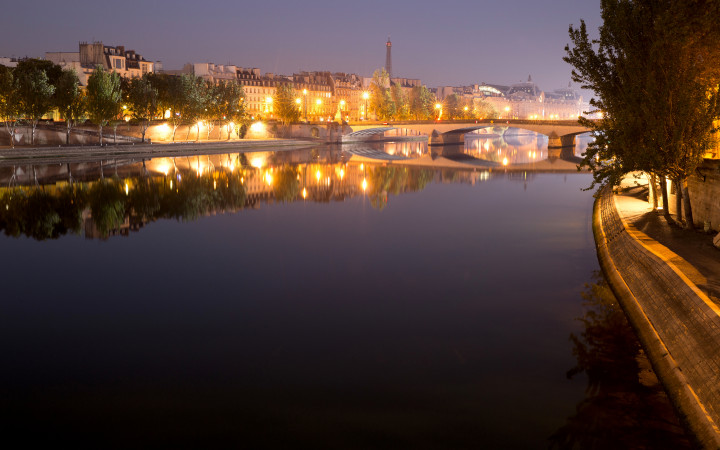Today’s Wonder of the Day was inspired by sarah. sarah Wonders, “Why is Paris the city of love?” Thanks for WONDERing with us, sarah!
If you were going to visit the most romantic city in the world, where would you go? How about a city known as the "City of Love"?
You could enjoy spots, such as the Eiffel Tower and the Louvre. Can you guess which city we're talking about? It's Paris, of course!
The capital of France goes by another famous nickname: the "City of Lights." How did it get this nickname? If you visit Paris after dark, you might think you have the answer figured out.
When the Sun sets, Paris doesn't sleep. Instead, it comes alive with the glow of millions of lights all throughout the city. For example, there are nearly 300 illuminated sites around the city, including statues, fountains, monuments, churches, and hotels.
In addition, 33 of Paris' 37 major bridges are illuminated each night. Perhaps the most famous illuminated object, however, is the Eiffel Tower, which shines brightly each night thanks to more than 20,000 light bulbs.
All of these lights aren't responsible for the city's nickname, though. After all, many other cities around the world, such as New York City and Hong Kong, shine just as brightly.
Experts believe the nickname actually stems from two possible sources. Some believe Paris became known as "La Ville-Lumière" ("City of Lights" in French), because the city was one of the first major cities in Europe to adopt widespread street lighting.
Most experts, however, believe the nickname came about because Paris was the birthplace of the Age of Enlightenment, also known as the Age of Reason. The Enlightenment was a philosophical movement that began in Europe in the late 17th century.
It was a time marked by the rise of great concepts, such as reason, the scientific method, and liberty. Philosophers and scientists made great strides in education and inventions, leaving behind the "dark" Middle Ages.
In addition to scientific discoveries and cultural advances, the Enlightenment also inspired the American and French revolutions. With its roots in Paris, the Enlightenment helped the city become "La Ville-Lumière."




